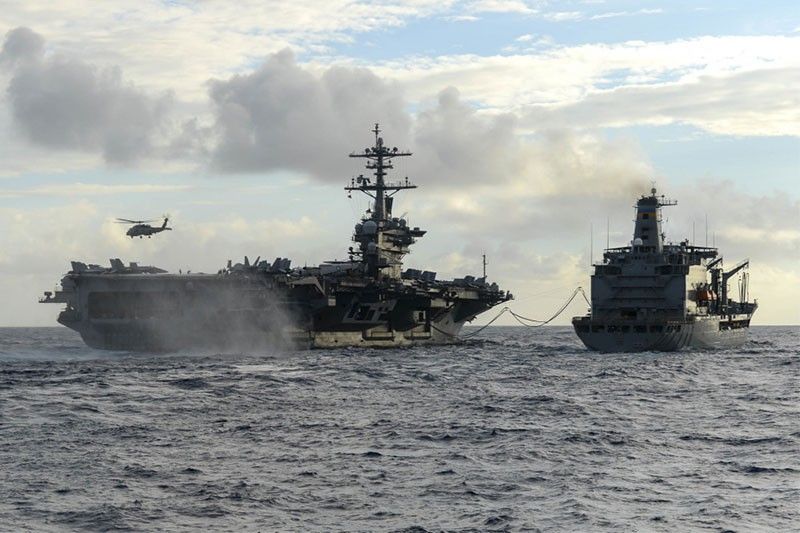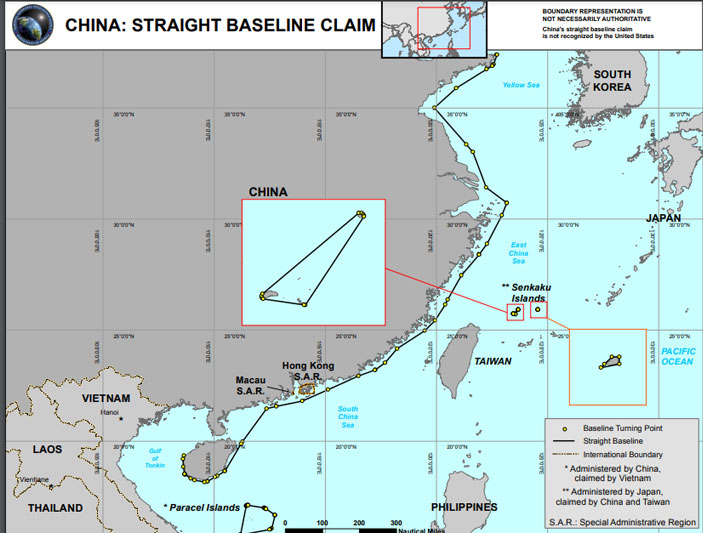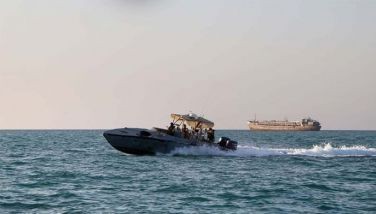Pentagon report shows China is the biggest challenge to FONOPs in 2020

MANILA, Philippines — The United States challenged China's excessive maritime claims in the South China Sea the most last year, as reported by the US Department of Defense in its 2020 Freedom of Navigation Report.
Earlier this month, the US DoD or the Pentagon listed the range of excessive maritime claims that US forces challenged from Oct. 1, 2019 to Sept. 30 2020.
The Pentagon defined "excessive maritime claims" as those that are inconsistent with international law, particularly with provisions under the United Nations Convention on the Law of the Sea.
Beijing appears to be the top violator of the UNCLOS with the most multiple operational challenges in the East and South China Seas:
- Straight baseline claims
- Restrictions on foreign aircraft flying through an Air Defense Identification Zone without the intent to enter national airspace
- Criminalization of surveying and mapping activities by foreign entities which do not obtain approval from or cooperate with China
- Jurisdiction over all surveying and mapping activities "in territorial air, land and waters, as well as other sea areas under [Chinese] jurisdiction" without distinction between marine scientific research and military surveys
- Security jurisdiction over the contiguous zone
- Prior permission required for innocent passage of foreign military ships through the territorial sea
- Territorial sea and airspace around features not so entitled, such as low-tide elevations

Other South China Sea claimants were also included in the list:
- Malaysia: Prior consent required for military exercises or maneuvers in the exclusive economic zone
- Taiwan: Prior notification required for foreign military or government vessels to enter the territorial sea
- Vietnam: Prior notification required for foreign warships to enter the territorial sea
Note that China's navy has the largest number of ships deployed at sea between 2015 and 2020, exceeding the US, according to a report titled "The Chinese Naval Shipbuilding Bookshelf."
The US navy, however, remains the strongest in the world in terms of overall capabilities.
The Pentagon noted that if these claims remain unchallenged, it could limit the rights and freedoms enjoyed by other nations.
"As long as restrictions on navigation and overflight rights and freedoms that exceed the authority provided under international law persist, the United States will continue to challenge such unlawful maritime claims," the Pentagon earlier said.
Just last week, the US along with allies Australia, India and Japan reaffirmed their commitment to "meet challenges" to the maritime order in the East and China Seas.
The alliance of the four powers, known as the "Quad", was formed to counter Beijing's rising influence in the Indo-Pacific region.
"We support the rule of law, freedom of navigation and overflight, peaceful resolution of disputes, democratic values, and territorial integrity. We commit to work together and with a range of partners," Quad leaders said in a joint statement.
- Latest
- Trending
































